Everything you ever wanted to know about the south beach diet
Get the high-protein and lower-carb secrets to losing up to 13 pounds in two weeks.
Updated on November 1, 2022
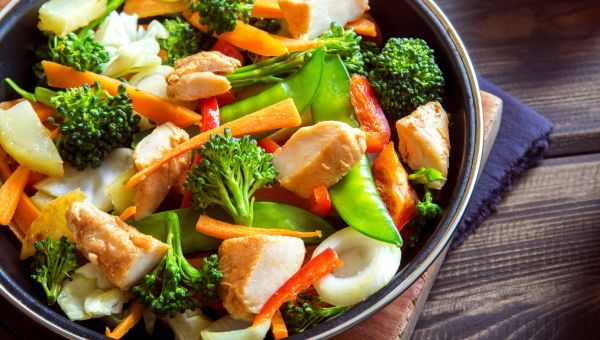
The South Beach Diet—you’ve heard the name many times, but what exactly is it?
Developed in 2003 by cardiologist Arthur Agatston, MD, the South Beach Diet focuses heavily on loading your plate with tons of nutrient-rich, non-starchy vegetables, hearty portions of lean proteins, and a healthy amount of good-for-you fats, all of which promote weight loss. The diet is void of added sugars, moderately low in carbohydrates, and limits your servings of fruits, starchy veggies, whole grains, and legumes.
South Beach takes the guesswork out of slimming down with three distinct phases: a two-week total body reboot, guided eating to promote steady weight loss—until you’ve reached your goals—and finally, an extended maintenance period. Don’t worry; you don’t have to starve yourself to see results. In fact, the South Beach Diet encourages regular eating—up to six times a day.
Read on for South Beach basics, plus tips to help fulfill its promise of dropping up to 13 pounds in just two weeks.
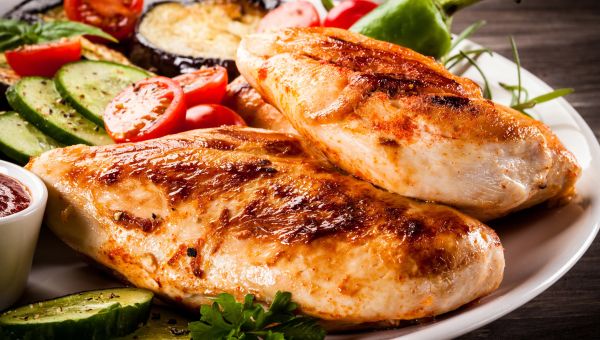
Phase 1: Load your plate with lean protein
The average American consumes about 16 percent of their daily calories from protein. The good news is that South Beach encourages incorporating lean protein into every meal.
Here’s why: Research suggests an increase in protein may aid weight loss and management. For one thing, protein helps keep you fuller for a longer time, which should prevent grazing throughout the day.
The right amount of protein for your body depends on a number of factors—age, weight, sex, and activity level—and is best determined by your healthcare provider. As a general rule, adults should aim to eat about eight grams of protein for every 20 pounds of body weight. Eating within the South Beach guidelines—including lean protein servings in both meals and snacks—is a good way to do just that.
South Beach-friendly proteins include chicken breast, sirloin steak, tuna, shellfish, pork loin, and eggs. But not all animal proteins are OK by the diet's standards. What’s not? Fatty cuts of meat, like pork ribs, duck, and chicken wings.

Phase 1: Forget about fruit (for now)
Phase 1 of the South Beach plan is designed to eliminate cravings for certain foods our bodies have become accustomed to—including carbs like fruit and fruit juices—by fixing insulin resistance and “resetting” your body.
By conventional standards, fruit is a healthy part of your diet. The United States Department of Agriculture recommends adults consume between 1-1/2 and 2 cups of fruit each day.
During phase 1 of the South Beach Diet however, fruit is too dense with carbohydrates and laden with natural sugars to make the cut. This is an approach shared by other weight loss programs, like Atkins. Fear not; it’s only temporary.
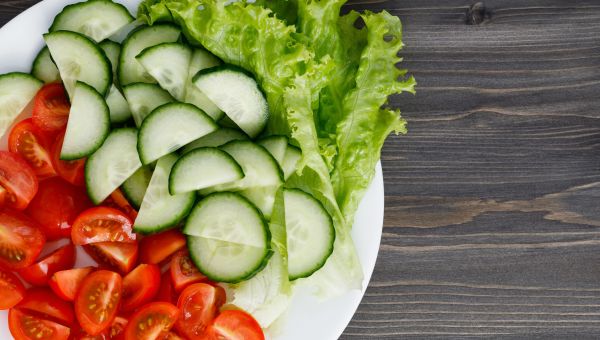
Phase 1: Sate yourself with non-starchy veggies
Vegetables are healthy diet staples, and federal nutrition guidelines suggest that you eat between four and six servings daily. The South Beach Diet recommends five or six servings of vegetables a day. So, in addition to a serving of lean protein, your plate should be piled high with non-starchy vegetables at every meal.
Across the board, non-starchy vegetables are low in calories and loaded with nutrients like vitamins A and C, potassium, and fiber. Why does that matter? Well, vitamins A and C are vital for the health and growth of your body’s cells, and fiber promotes bowel health and has been known to aid in weight loss.
Fill your plate with South Beach-approved veggies, like broccoli, cauliflower, Brussels sprouts, asparagus, cucumbers, and peppers.
Not all veggies were created equal. Starchy vegetables, like sweet potatoes, carrots, beets, and corn (actually a grain), should stay off your dinner table.
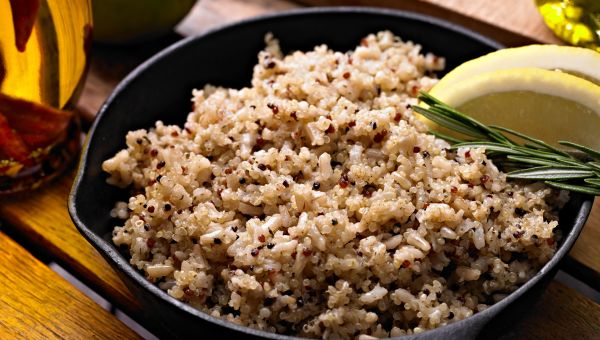
Phase 1: Kiss grains goodbye—it’s not forever
In this phase, grains and other carb-heavy foods, like bread, cereal, and pasta, fall into the same trap as fruits. According to South Beach, even in small quantities, they can derail your dieting efforts, and are consequently off limits for the first two weeks.
In general, carb-heavy foods carry a proportionately larger glycemic load, a measurement of how much a food affects blood sugar levels. Whole grains typically have a smaller glycemic load but are still off limits on phase 1. A cooked cup of barley has an estimated glycemic load of 19, while the glycemic load of white rice is higher at 24. Frequent spikes in blood sugar can promote weight gain and should be avoided.
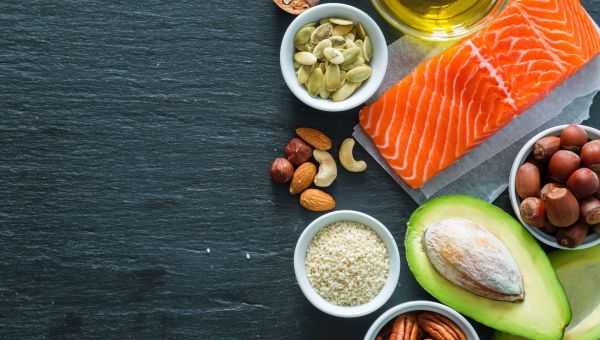
Phase 1: Embrace healthy fats
Unsaturated fats should be part of a healthy diet; they promote healthy cell function, help reduce inflammation associated with some diseases, and aid in lowering unhealthy cholesterol levels—a heart disease risk factor. Research suggests a diet rich in healthy fats boosts feelings of fullness and helps sate hunger throughout the day, which is important for anyone looking to slim down.
On the South Beach Diet, healthy fats like avocado, nuts, nut butter, olive oil-based mayonnaise, and olive and coconut oils should be limited to three servings a day. Nuts and nut butters should make up just one of those daily servings. Adding much more ups your risk of consuming too many calories, sabotaging your weight loss.
What’s a serving?
- 1 tablespoon of oil or mayo
- Half an avocado
- 1/4 cup of nuts
- 2 tablespoons of nut butter
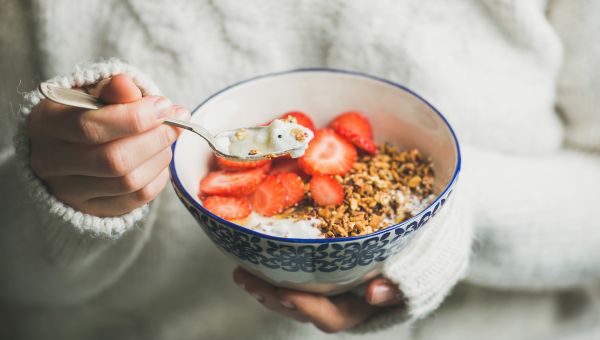
Phase 1: Mind your dairy intake
Dairy isn’t an essential component of the South Beach Diet, but it is allowed. During the program, dairy should be limited to two servings a day as part of your daily protein intake. South Beach-approved dairy foods include buttermilk, plain full-fat Greek yogurt, whole milk, and most cheeses.
Dairy tends to be higher in calories, so too much is sure to spoil your weight loss efforts.
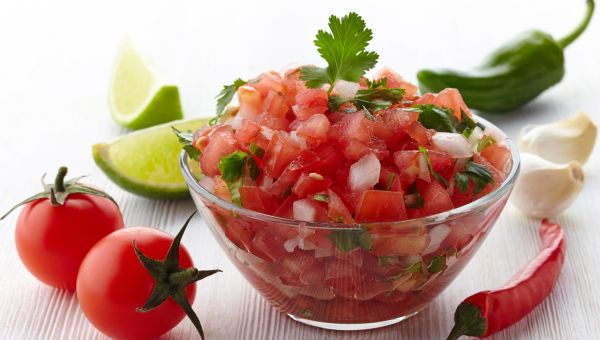
Phase 1: Enjoy your extras
“Extras” on the South Beach Diet are any foods with fewer than three grams of carbohydrates and no more than 35 calories per serving. They can include flavorful toppings or even a light dessert. Some great options:
- 2 tablespoons of salsa
- 1 tablespoon of sour cream
- 1 tablespoon of half-and-half
- 1 cup of sugar-free gelatin
Choose wisely. You’re only allowed three a day.
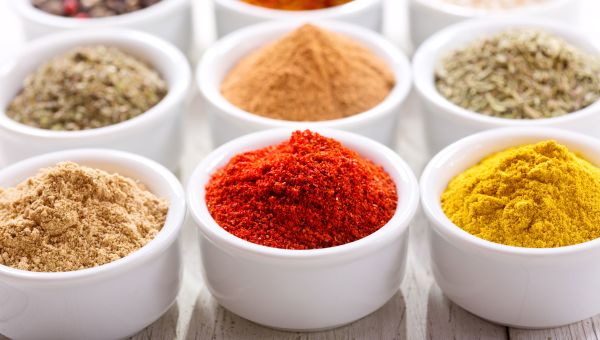
Phase 1: Don’t forget about your free foods
What’s better the adding flavorful Extras to your meals? Incorporating Free Foods. There's no limit on things like herbs, spices, broths, lemon and lime juice, low-sodium soy sauce, vinegar, or any foods with fewer than 10 calories and less than one carb per serving.
A word of caution: Soy sauce and broth—even low-sodium selections—are often loaded with sodium, which can affect your blood pressure. High blood pressure is a risk factor for heart disease, the leading cause of death among Americans. When looking to add these, don't forget to take a peek at the sodium content.
As a guide, the American Heart Association recommends no more than 2,300 milligrams of salt per day, with the ideal limit being 1,500 milligrams per day.
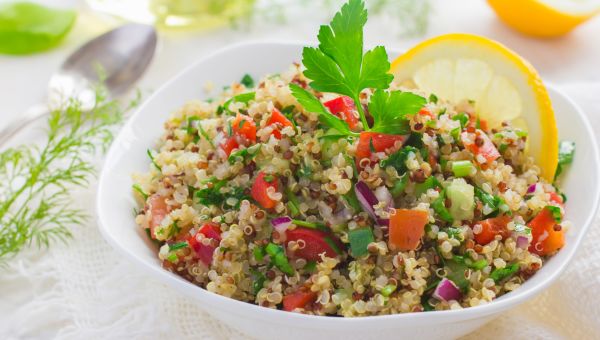
Phase 2: Have your carbs and eat them, too
You’re off to a running start after the total body reboot, and it’s time to make your way into phase 2—the steady weight loss stage. This phase of the South Beach Diet isn’t so different from the first. The mainstays of the diet remain the same: lean proteins, healthy fats, and non-starchy vegetables.
You can’t avoid carbs forever, and the creator of this diet doesn’t want you to. Here, you start to add back carbs, but the emphasis is on the quality. The South Beach Diet works to teach you the difference between good and bad carbs.
It is recommended that a typical diet consist of 45 to 65 percent carbohydrates. A South Beach dieter should aim for closer to 28 percent of daily calories from good carbohydrate sources, like fruits, vegetables, whole grains, and legumes.
So, following your first two weeks on the plan, incorporate two servings of good carbs into your diet. Give quinoa, couscous, or black beans a try; 1/2 cup of each, cooked, counts as a serving. You can even have bread again. Make sure it’s 100 percent whole grain, and mind your serving size. One slice counts as a serving.
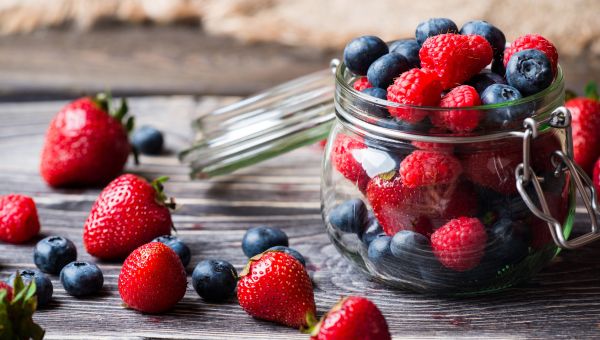
Phase 2: Choose (some) fresh fruits
Fruit's back, baby! You can now return nature's candy to your diet. But before you run to the farmer’s market for a bushel of bananas, remember there are restrictions.
Phase 2 of the South Beach Diet limits your daily fruit intake to just two servings. Fresh, whole fruits are always best, but frozen and dried fruits are permitted, as long as they don’t contain any added sugars. Options like a small apple, a medium orange, a cup of berries, two plums, or a small banana are ideal.
Since South Beach is a low-sugar diet, certain fruits remain a no-no, including dates, figs, watermelon, raisins, canned fruit, and fruit juices.
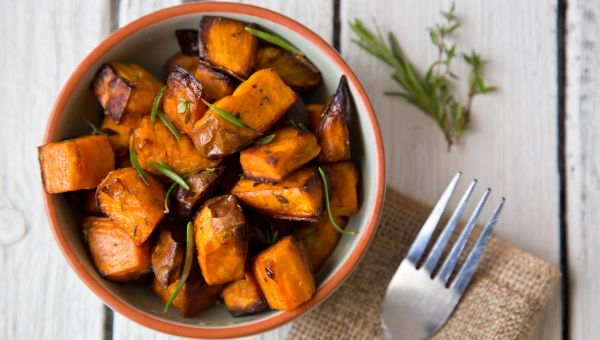
Phase 2: Loosen the reins on your veggie intake
All veggies approved for noshing in phase 1 are still encouraged, but there are a few additions to the list. The once-forbidden starchy veggies are now acceptable, within limits.
Incorporate starchy vegetables, like peas, yams, pumpkin, carrots, sweet potatoes, and winter squash into your diet, starting with one serving a day. The suggested serving size is just 1/2 cup cooked, so don’t overload your plate. And note that some of the more carb-heavy veggies, like pumpkin and rutabaga, are permitted only once a week.
The vegetables most densely packed with carbs still remain off-limits on the South Beach Diet. Beets, corn, and potatoes should be left in the produce aisle and off your plate on the plan, even in phase 2.
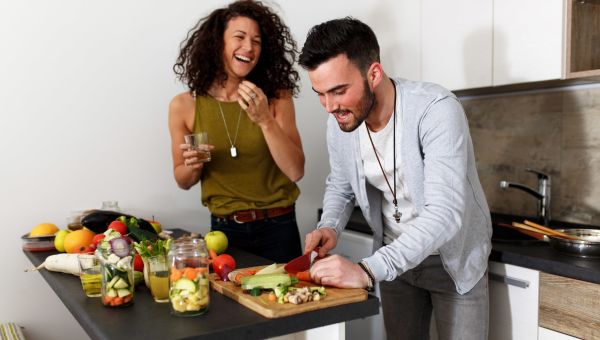
What’s Next—Phase 3
The plan is not designed to be a short-term solution for slimming down. Instead, the South Beach Diet was created to help you jump start weight loss and adopt healthy habits. With the tools you picked up in phases 1 and 2, you can be well on your way to maintaining a healthy lifestyle.
When you hit your goal weight, follow the plan's basic principles, including lots of lean protein, healthy fats, and non-starchy vegetables. Choose carbohydrates wisely, from sources like whole grains, legumes, fruits, and some starchy veggies. Continue to eat up to six times a day to keep yourself from becoming ravenously hungry, which can trigger overeating.
No foods are off limits in this phase, but moderation is the key to eating the decadent treats you may enjoy.

Harvard Health Blog. How much protein do you need every day? Updated January 19, 2022.
Leidy HJ, Clifton PM, et al. The role of protein in weight loss and maintenance. The American Journal of Clinical Nutrition. 2015;101(6):1320S1329S.
U.S. News. South Beach Diet: What To Know: US News Best Diets. Updated September 13, 2022.
Lee SH. Adults Meeting Fruit and Vegetable Intake Recommendations — United States, 2019. MMWR Morbidity and Mortality Weekly Report. 2022;71.
Centers for Disease Control and Prevention. Leading causes of death. Published September 6, 2022
American Heart Association. Lifestyle + Risk Reduction High Blood Pressure; 2021. Accessed October 2, 2022.
More On


video
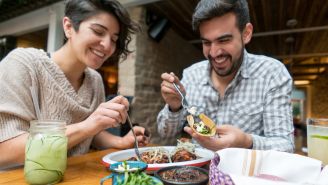
article
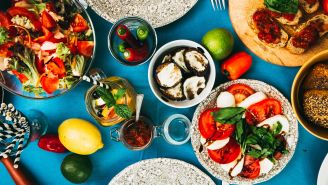
slideshow


video


video
